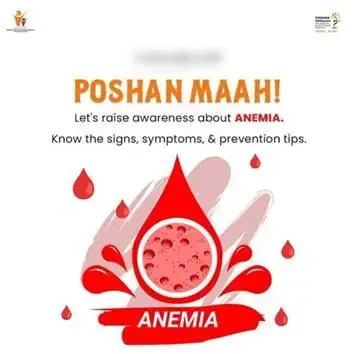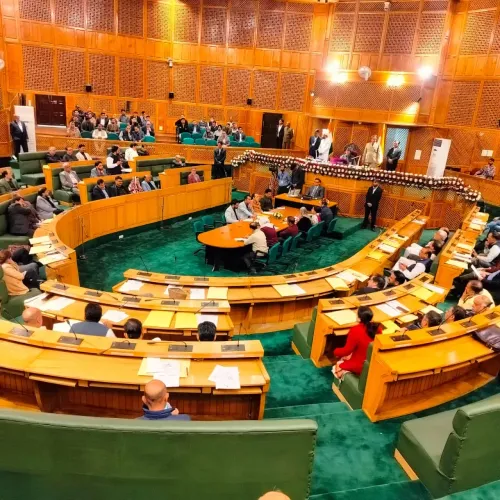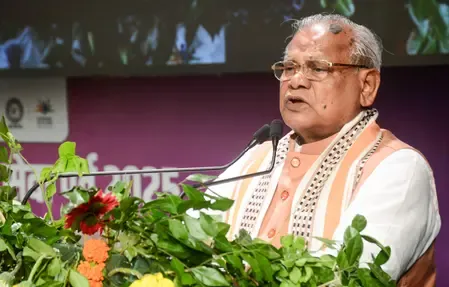Government Reinforces Initiatives for 'Anaemia Mukt Bharat'

Synopsis
Key Takeaways
- Objective of 'Anaemia Mukt Bharat' is to eliminate anaemia.
- Rice fortification initiative to be fully implemented by March 2024.
- 57 FSSAI-approved labs for fortified rice testing.
- Funding of Rs 805.91 crore allocated for 2024-25 under NHM.
- Fortified rice includes essential micronutrients like Iron and Vitamin B12.
New Delhi, April 1 (NationPress) To realize the goal of 'Anaemia Mukt Bharat' (AMB), the rice fortification initiative has been progressively expanded, with the commitment that by March 2024, all custom-milled rice will be substituted with fortified rice across all schemes, as stated by the government on Tuesday.
The Food Safety and Standards Authority of India (FSSAI) has sanctioned 57 laboratories for fortified rice, 35 for fortified rice kernels, and 15 for premix for fortified rice kernels, according to Union Minister of State for Health and Family Welfare, Anupriya Patel, in a written response in the Rajya Sabha.
The government distributes fortified rice, rich in essential micronutrients, through the Targeted Public Distribution System, Pradhan Mantri Poshan Shakti Nirman scheme, Integrated Child Development Services, and other welfare programs across all States/UTs to combat micronutrient deficiencies.
The initiative aims to diminish the incidence of anaemia among children and women, including pregnant and lactating mothers, by implementing six key interventions.
States receive funding from the National Health Mission (NHM) based on the proposals submitted in their Annual Programme Implementation Plans.
For the fiscal year 2024-25, the NHM has allocated Rs 805.91 crore to states/UTs for executing various activities under the 'Anaemia Mukt Bharat' program, informed the minister.
Fortified rice, enriched with vital micronutrients such as Iron, Folic acid, and Vitamin B12, is supplied through various initiatives like the Targeted Public Distribution System (TPDS), Pradhan Mantri Poshan Shakti Nirman (PM POSHAN) scheme, Integrated Child Development Services (ICDS), and other welfare schemes in all States/UTs to tackle micronutrient deficiencies.
While iron deficiency has long been recognized as a primary cause of anaemia, health experts now identify air pollution and vitamin B12 deficiency as significant contributors to its rising prevalence in the nation.
Anaemia arises when there is insufficient haemoglobin in the body to transport oxygen to organs and tissues. This condition primarily affects women and children, resulting in a decreased count of red blood cells or haemoglobin. In severe instances, anaemia can hinder cognitive and motor development in children.









